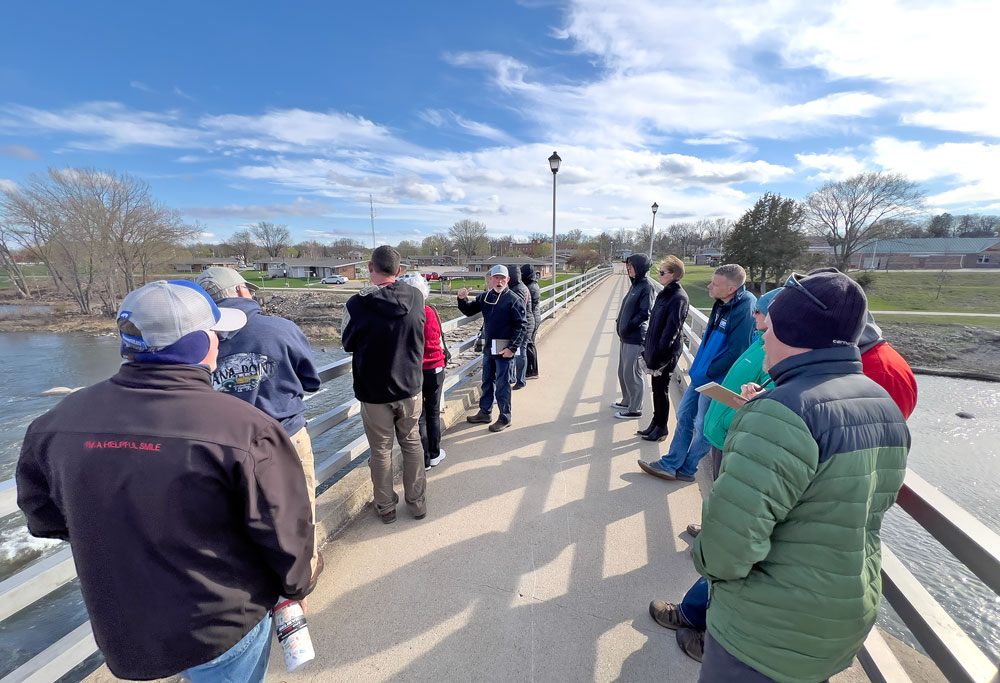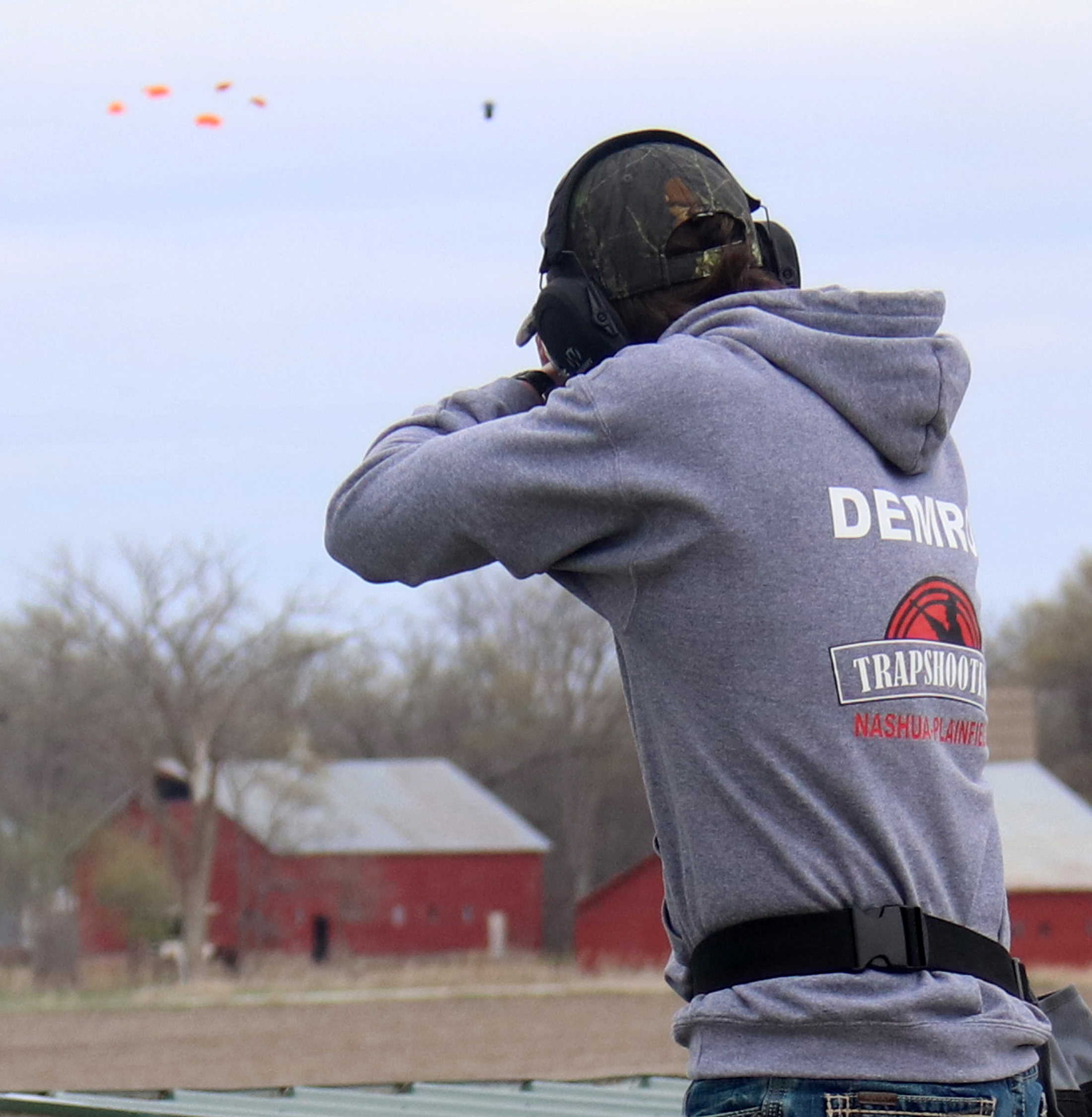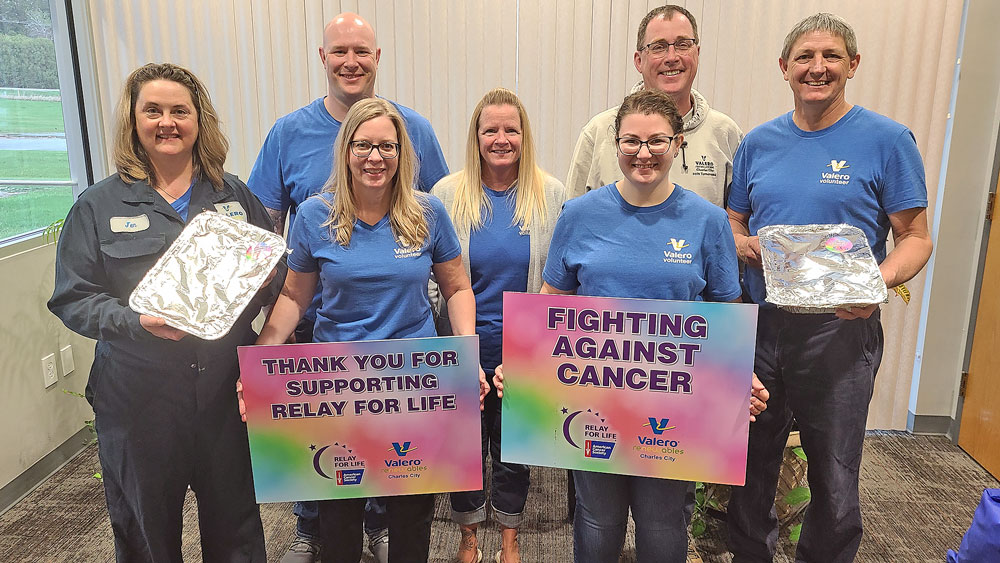City’s wastewater plant incapable of handling chicken plant’s timeline
Council discusses options for expanding capacity
By Kate Hayden
khayden@charlescitypress.com
Time is of the concern for Charles City’s newest chicken production plant –– and for the city’s wastewater treatment capacity.
Simply Essentials Poultry is moving into the existing chicken processing plant at 901 North Main Street and expects to begin first-shift production in November, City Administrator Steve Diers told the City Council during Monday’s planning session. Initially, the kill plant will process 336,000 birds per week destined for Midwestern restaurants and retailers. Within a year, the company aims to be operating on two shifts, processing approximately 660,000 birds per week.
That’s a problem for current operations at Charles City’s Wastewater Treatment Plant, which city officials say doesn’t have the kind of loading capacity to legally handle the second shift’s resulting wastewater effluent and nutrient intake.
“Our current plant is a trickling filter plant and we can only handle basically where we’re at,” Diers said. “We’re at a point where we have some capacity and some room for expansion, but the needs here from Simply Essentials might put us into looking at doing something sooner rather than later.”
Diers presented four possible solutions to work within regulations from the Iowa Department of Natural Resources, drafted by Fox Engineering:
- Option 1, installing an onsite pre-treatment system at Simply Essentials ($3 million to $3.5 million on a 12-18 month timeline. Simply Essentials would likely pay for it).
- Option 2, expanding the current city wastewater treatment plant to accept the anticipated loading at Simply Essentials ($3 million to $3.5 million on an 18-24 month timeline. The city would bear the cost.) This is considered a short-term solution.
- Option 3, a continuation of Option 2 that addresses more long-term needs ($11 million to $12 million additional to Option 2, or a total cost of $14.5 million to $16 million. The city would bear the cost.).
- Option 4, an overall expansion of the existing city plant to address the city’s long-term nutrient reduction needs; does not meet Simply Essentials’ desired timeline, but is seen as the most viable long-term solution by Diers for the city’s wastewater challenges ($12 million to $13 million on a 30-36 month timeline. The city would bear the cost.)
“We need to do plant upgrades at some point. The question is do we accelerate that to meet the needs of Simply Essentials?” Diers said to the Press afterwards. “The plant, the way it is now can’t meet nutrient reduction.”
Not all options address the city’s long-term goals for the plant, Diers told the council.
“Options 2 or 3 are not good options,” he said. “We wouldn’t be addressing our general needs or long-term needs for nutrient reduction.”
Without change, Charles City’s treatment plant won’t be able to reasonably handle Simply Essentials’ wastewater projections, Water Superintendent Dan Rimrod told the council.
“I feel like they didn’t do their due diligence like they should have,” Council Member DeLaine Freeseman said. “This is all stuff that they should have been checking out ahead of time, and I guess that I don’t think it’s our problem that they’ve kind of gotten themselves into the position that they’re at.
“I think we need to do what’s best in the interest of the city, and we’ll try to work with them to find the best solution … I don’t feel like we need to make a hasty decision and spend money on something that’s not really a good investment, long-term,” Freeseman added.
Not all of the economic benefits for the city and county are totally clear yet, Mayor Jim Erb said. While the plant expects to add about 490 jobs to the city, there’s no solid estimation on a proportional tax evaluation and it was unclear to the council where the plant will be sourcing chickens from.
Council members also questioned the stability of the plant –– two previous poultry processors have closed already in the same location, with the last owners ceasing operations in 2011. Both of the previous plants had a lower product output, staying within what the city’s treatment operations could handle, Rimrod said.
“The third chicken plant to operate in that facility in a short period of time –– it’s really tough to commit not knowing,” Council Member Michael Hammond said. “What do we need? And then we can fit them into the puzzle.”
Most of the city’s revenue from the plant will come from water and sewer usage fees, Diers told the Press, which could be used to help pay for expansion of the wastewater treatment plant and other public services.
Simply Essentials is also planning on using new technology to help cut down on wastewater input, Diers told the council.
“They’re taking steps to keep things that are high in nutrients out of our wastewater, so it’s not even going into the wastewater,” Diers said. “That’s encouraging, we just don’t know how exactly that is going to play out.”







Social Share